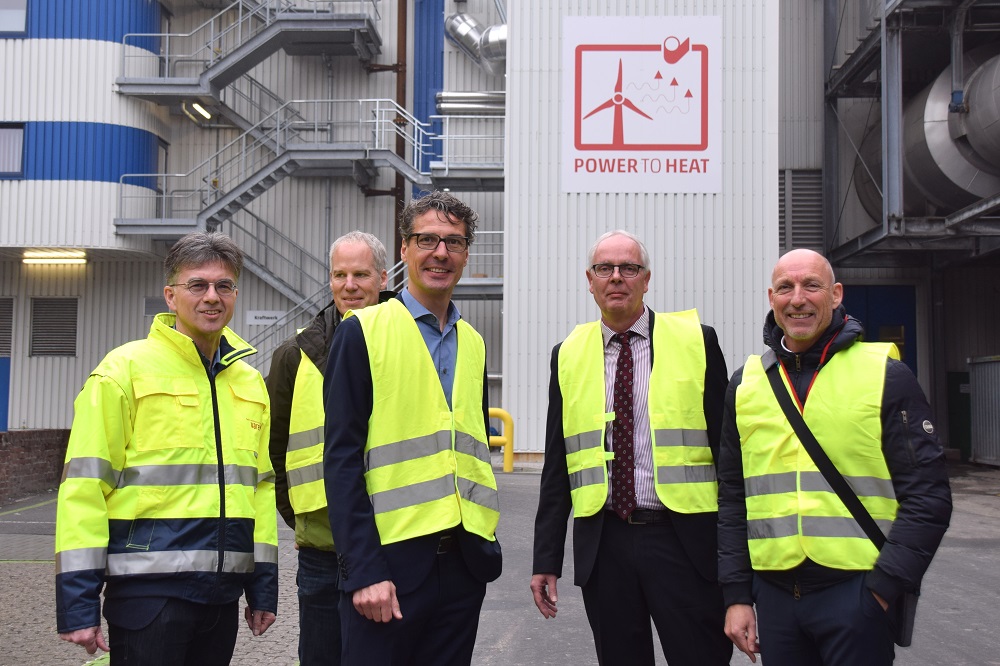Papier- und Kartonfabrik Varel (PKV) is testing a module that can use wind power peaks to generate steam for paper production. When the climate protection module provides steam for the paper machines, this in turn saves natural gas and avoids CO2 emissions in PKV's own power plant.
The background to the initiative is PKV's endeavour to produce completely CO2-neutral in the long term. As part of its current strategy programme, the company is investing massively in the energy efficiency of its plants, among other things. The energy consumed per tonne of paper is to be reduced by 23% in the coming years. A further modernisation of the already highly efficient power plant is also scheduled for 2020 - here, 92% of the energy source natural gas is already converted into usable steam and electricity. By comparison, coal-fired power plants use less than 50% of their energy.
PKV has now added a power-to-heat module to these and other initiatives (including the use of biogas and solar power). As part of the enera joint project, the mill is testing how excess electricity can be quickly and easily converted into steam, which the paper machines need to dry the paper web.
Every ton of steam generated by electricity from the power plant or the grid ultimately saves natural gas and thus CO2. The module is capable of converting both electricity from PKV's own power plant and from EWE's power grid.
